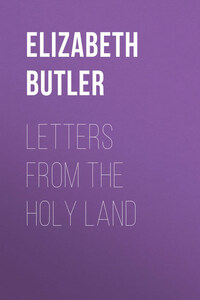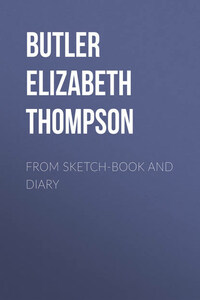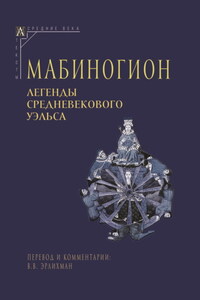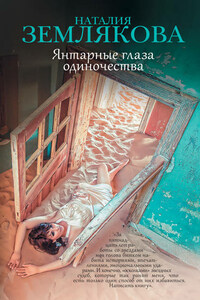THESE letters, written to my mother, and published chiefly at her request, can lay no claim to literary worth; their only possible value lies in their being descriptive of impressions received on the spot of that Land which stands alone in its character upon the map of the world. But the reader will more easily excuse the shortcomings of my pen than, I hope, he will ever do those of my pencil!
I will make no apologies for the sketches, save to remind the reader that most of them had to be done in haste. They are necessarily considerably reduced in size in the reproduction, so as to suit them to the book form.
It was a happy circumstance for me that my husband’s appointment to the Command at Alexandria should have enabled us to realize this journey. A four-weeks’ leave just allowed of our accomplishing the whole tour. The wider round that includes Damascus and Palmyra would, of course, necessitate a much more extended holiday.
The time of year chosen by my husband for our visit was one in which no religious festivals were being celebrated, so that we should be spared the sight of that distressing warring of creeds that one regrets at Jerusalem more than anywhere else. Also the spring season is the healthiest and most agreeable, and we timed our journey so as to begin and end it with the moon which beautified all our nights.
We are chiefly indebted to Mr. Aquilina, the very capable and courteous agent for Messrs. Cook and Son at Alexandria, for the perfect way in which the machinery of the expedition was managed for us. Without such good transport and camps one does not travel as smoothly as we did. To the Archbishop of Alexandria we owe a debt of gratitude for his kind offices in helping to render our way so pleasant.
Government House, Devonport,
Christmas Day, 1902.
LETTERS FROM THE HOLY LAND
In the Adriatic, 28th February 189-.
My… – I am out on the dark waters of the Adriatic. It is late, and the people on board are little by little subsiding into their cabins, and I shall write you my first letter en route for the Holy Land.
If all is well I shall join W. at Alexandria, and we shall have our long-looked-forward-to expedition from thence. Venice has given me a memorable “send-off,” looking her loveliest this radiant day of spring, and were I not going where I am going my thoughts would linger regretfully amongst those lagoons already left so far behind. I watched to the very last the lovely city gradually fading from view in a faint rosy flush, backed by a blue-grey mist, and as we stood out to sea all land had sunk away and the sun set in a crimson cloud, sending a column of gold down to us on the perfectly unruffled waters. Later on the moon, high overhead, shining through the mist, made the sea look like blue air, and quite undistinguishable from the sky. The horizon being lost we seemed to be floating through space, and the only solid things to be seen were the moon and our fellow planets and the stars, so that I felt as though I had passed out of this world altogether. Indeed one does leave the ordinary world when shaping one’s course for Palestine!
Port Said, Sunday, 5th April 189-.
My… – We are moored at Port Said on board the large Messageries steamer, having left Alexandria at 5.30 P.M. yesterday on our way to Jaffa. What a hideous place is this! And this is the Venice that modern commerce has conjured up out of the sea. Truly typical! As I look at the deep ranks of steamers lining the Canal mouth, begrimed with coal-dust and besmirched with brown smoke, I might be at the Liverpool Docks, so much is the light of this Land of Light obscured by their fumes. On the banks are dumped down quantities of tin houses with cast-iron supports to their verandahs. When my mind reverts to the merchant city of the Adriatic and compares it with this flower of modern commerce I don’t feel impressed with, or in the least thankful for, our modern “Progress.” Last night, when we arrived, a barge of Acheron came alongside full of negroes in sooty robes, one gnawing a raw beef bone by the light of the torch in the bows. They were coming to coal us. And, being coaled, we shall draw light out of darkness, loveliness out of hideousness, and this evening we shall be taking our course to the Long-promised Land!
Where shall I finish this? Is it possible that my life-long wish is now so soon to be accomplished?
No two people, I suppose, receive the same impression of the Holy Land. None of the books I have read tally as to the feelings it awakens in travellers. How will it be with me?
Ramleh, on the Plain of Sharon,
6th April.
At sunrise this morning the throbbing of the screw suddenly ceased, and as I went to the port-hole of our cabin I beheld the lovely coast of the Land of Christ, about a mile distant, with the exquisite town of Jaffa, typically Eastern, grouped on a rock by the sea, and appearing above huge, heaving waves, whose grey-blue tones were mixed with rosy reflections from the clouds. Here was no modern harbour with piers and jetties, no modern warehouses, none of the characteristics of a seaport of our time. Jaffa is much as it must have looked to the Crusaders; and we approached it, after leaving the steamer, much as pilgrims must have done in the Middle Ages. The Messageries ship could approach no nearer on account of the rocks, and we had to be rowed ashore in open boats – very large, stout craft, fit to resist the tremendous waves that thunder against the rocky ramparts of Jaffa. How often I have imagined this landing, and have gone through it in delicious anticipation!









